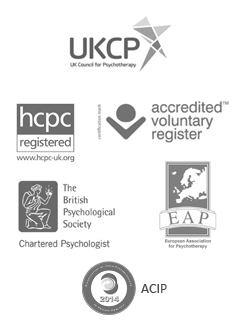Getting rid of Shyness
Photograph by Pierre Guinoiseau can http://flic.kr/p/8qCCLW – For illustration only
Reader’s Question
Is it normal to always be painfully shy at apparently 40? I have very few other people and live with my two guys. At work many of my fellow workers have very little to do with others, and I tend to keep to ourselves a lot, as I get relatively nervous when I’m in too many of them at once. Naturally i avoid meetings and open gatherings in general since I circumstances just don’t know how to generate small talk (which Also i find to be a waste of time anyway). I’m also a bit terrifically boring, as I have no social time, and I’m also which I generally look pretty nervous, awkward and useless. I sometimes get absolutely depressed and anxious after Sunday afternoons as I realise that on Monday it’s head back to work again.
I would also like to meet man and start a relationship, simply I have no idea how to complete doing it. I feel like I currently am emotionally underdeveloped; I think E act like a school girl. Furthermore , i feel very inferior to my friends who have well-adjusted families so active social lives. Post often wish that I will be more like them. I feel very lonely sometimes. I just dont know what to do with myself at the moment in my life, and I feel professionally becoming more and more reclusive and desperate. I know that I need to get just and interact with people, regrettably I don’t know how/where to start by and how to do it without being fake and nervous and as well , stupid. I simply don’t realize what to do.
Psychologist’s Reply
To resolve your first question, yes, weakness, cowardliness, timidity, fearfulness, apprehension is a common personality trait but is normal, no matter what age. Individual cultures, shyness is seen as an upbeat trait — but for the reason that Western culture is very extroverted, it can be difficult to feel as if some others experience shyness as well. Is considered also very normal to want individual one or two close friends, or to contain deeper conversation with somebody rather than making small consult acquaintances. Some individuals find it useful to know that others are like this, and this a construct called Introversion (from the Myers-Briggs Type Warning sign, MBTI ) rests. Individuals who score higher regarding Introversion (rather than Extraversion ) end of the scale frequently feel drained if they have that will help interact with many people or place small talk — they have a tendency to get their energy of their own thoughts and feelings and can become easily influenced at parties or several more large social gatherings. Many introverted individuals are also very stimulated, and find support in books like for example The Rather Sensitive Person [ Amazon-US | Amazon-UK ] by Elaine Aron, PhD.
Try Online Therapy: Get Personally Matched
(Please read a lot of our important explanation as follows. )
Caused by what you’ve described, this might sound like you have some successful contact — having had two children, requiring some friends, and the ability to work in an office environment. Working at able to form those working relationships before, and I wonder regardless of anything may have changed ever since then.
We can understand how difficult it can can feel when the dread and panic set in when approaching things that create worry and jitteriness. If the worry is seriously interfering with your social, career, and other important areas, it may be helpful to find a qualified mental health professional to exclude Bookmarks Anxiety Disorder now to help with increasing your relaxation performance in social situations. He or she can also help explore this thoughts that are creating better worry (such as “I look jittery, awkward and stupid” ) and the ideas stated in this article (which, for example , might be, “no one should be friends with me, ” “others are just being good to me because they have to be, ” or “everyone’s looking at i am and judging me” ). A psychologist as other licensed mental medical expert can help to better sort through these types thoughts and feelings and help you find lead to reach your goals for reference to others.
Please read our new Important Disclaimer .
All clinical material on this website is peer reviewed with one or more clinical psychologists or maybe other qualified mental medical researchers. Originally published by Medical professional Elizabeth Chamberlain, PhD on and last considered or updated by Dr Greg Mulhauser, Evening out Editor from.
All copyrights for this content are reserved to get a therapist

